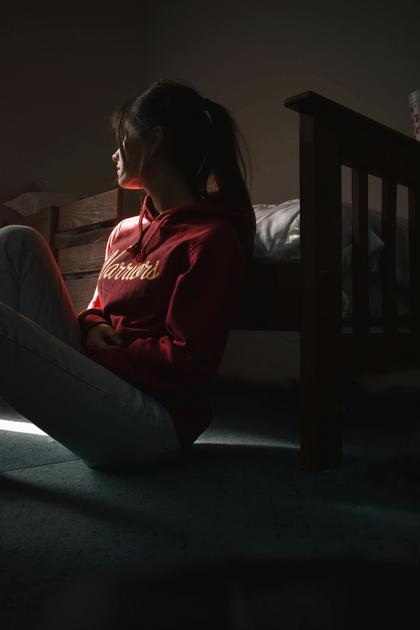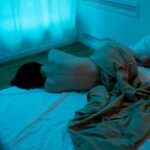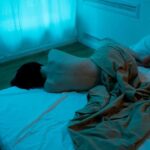If you’re a woman over 30, you might be grappling with more than just the daily grind of life. Hair loss linked to women’s sleep problems can be a silent struggle that accompanies fatigue, stress, and anxiety. Sleep issues can lead to a cascade of challenges, affecting not only your restful nights but also your hair health. Recognizing this connection is vital for many who face these female-specific hurdles.
As you navigate through sleepless nights, it’s essential to understand that you’re not alone in this journey. Many women experience similar frustrations, feeling trapped in an endless cycle of worry that impacts their overall well-being.
But guess what? There is hope. . So, let’s delve into this issue together and explore the surprising links between sleep struggles and hair loss.
Understanding the Connection Between Sleep and Hair Health
Many women face the dual challenge of hair loss and sleep problems. Research shows a direct correlation between lack of sleep and hair health. When you sleep, your body goes through critical restoration processes. If you’re not getting enough rest, it can affect everything from your hormones to your hair follicles.
Sleep deprivation leads to stress and hormonal imbalances, both of which are known culprits of hair loss. Women, especially those over 30, often juggle multiple responsibilities, leading to insufficient sleep and increased anxiety. Understanding this connection is crucial for addressing both sleep issues and hair health.
The Silent Struggles of Women’s Sleep Problems
Many women quietly endure sleep problems, which can manifest as insomnia, frequent awakenings, or restless nights. These issues may be influenced by stress, hormonal fluctuations, or lifestyle choices. The societal pressures women face can often exacerbate anxiety, leading to an ongoing cycle of sleepless nights and hair loss.
As you navigate through life, from managing careers to caring for families, you may feel overwhelmed. Understand that you are not alone in this struggle. It’s a common experience, and acknowledging it is the first step toward finding a solution.
Common Causes of Hair Loss in Women
Hair loss in women can be linked to several factors, including:
- Hormonal Changes: Fluctuations in hormones due to menstrual cycles, pregnancy, or menopause can significantly impact hair health.
- Stress: Both physical and emotional stress can result in conditions like telogen effluvium, leading to temporary hair loss.
- Poor Nutrition: A lack of essential nutrients, particularly vitamins and minerals such as iron, vitamin D, and biotin, can affect hair growth.
Recognizing these factors is essential for interweaving solutions for better sleep and healthier hair.
How Sleep Deprivation Impacts Your Body
Sleep deprivation does more than affect your mood; it impacts your entire body, including hair health. When you lack sleep, your body produces more cortisol, the stress hormone. Elevated cortisol levels can cause your hair to enter a shedding cycle.
Additionally, sleep affects your immune system and metabolic health. Poor immune function can lead to inflammatory conditions that may affect your scalp and hair follicles. By prioritizing sleep, you can significantly enhance your overall health, including your hair.
Emotional Effects of Hair Loss on Women
The emotional toll of hair loss can be profound. Many women experience feelings of inadequacy, anxiety, and even depression as a result. Our culture often places heavy emphasis on physical appearance, making hair an integral part of self-perception.
It’s essential to acknowledge these feelings. Embracing your emotions and understanding that they are valid is a significant step toward healing. Remember, losing hair does not diminish your beauty or value as a person.
Natural Remedies for Better Sleep
Improving sleep doesn’t require heavy medications. Instead, consider these natural remedies:
- Establish a Routine: Creating a consistent sleep schedule helps regulate your body’s internal clock.
- Herbal Teas: Chamomile or valerian root tea can promote relaxation before bed.
- Meditation or Yoga: Engaging in calming practices can soothe your mind and prepare your body for sleep.
See here how many women are resolving this without heavy medications. Click here to explore more.
Lifestyle Changes to Improve Sleep Quality
Simple lifestyle changes can improve your sleep quality:
- Limit Screen Time: Reduce time spent on devices before bed to prevent blue light disruption.
- Exercise Regularly: Regular physical activity can help you fall asleep faster and enjoy deeper sleep.
- Create a Restful Environment: Your bedroom should be dark, quiet, and cool to promote better sleep.
Making these adjustments can lead to a more restful night and, subsequently, healthier hair.
Empowering Stories of Women’s Hair Recovery
Countless women have faced the dual challenge of hair loss and sleep disorders and have turned their lives around. Their journeys inspire hope and serve as a reminder that recovery is possible. Through various approaches, including lifestyle changes and holistic remedies, many have restored not only their hair but also their sense of identity and confidence.
Listening to these empowering stories can motivate and encourage you along your path.
When to Seek Professional Help for Hair Loss
If you experience significant hair loss, consulting a dermatologist or healthcare professional is crucial. They can help identify underlying causes, such as hormonal imbalances or inflammatory conditions, and recommend tailored treatments.
Don’t hesitate to reach out for support. Professional guidance can lead you to the right solutions for both hair loss and sleep stability.
Rediscovering Confidence Through Self-Care
Ultimately, investing in self-care is vital for women facing hair loss linked to sleep issues. Take time for yourself. Engage in activities that bring you joy and help alleviate stress. Self-care isn’t selfish; it’s necessary.
Believe in the power of small, impactful changes. Many women have successfully navigated these challenges and improved their symptoms by following simple steps. You can also rediscover your confidence through self-care and healing practices.
SEE MORE







